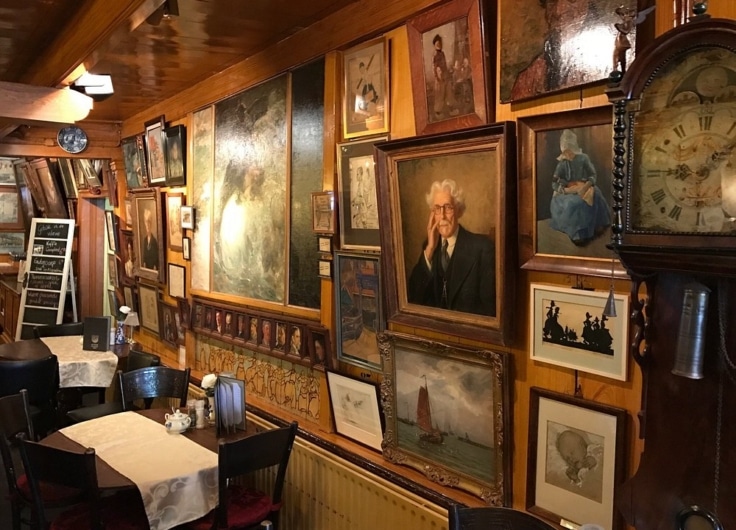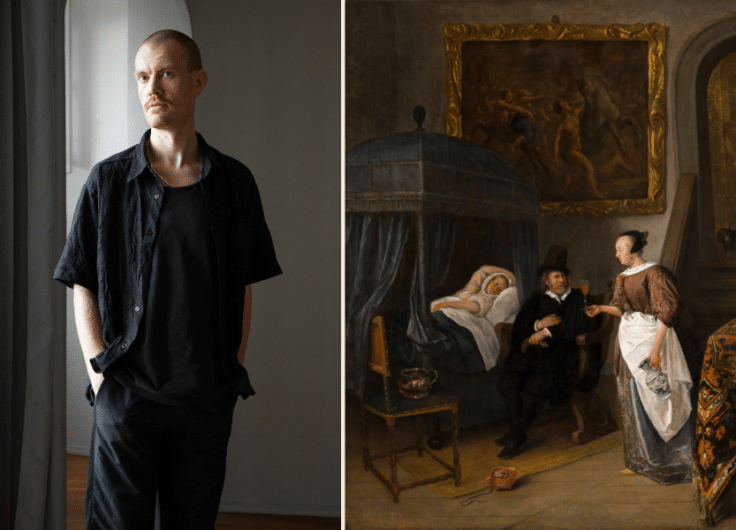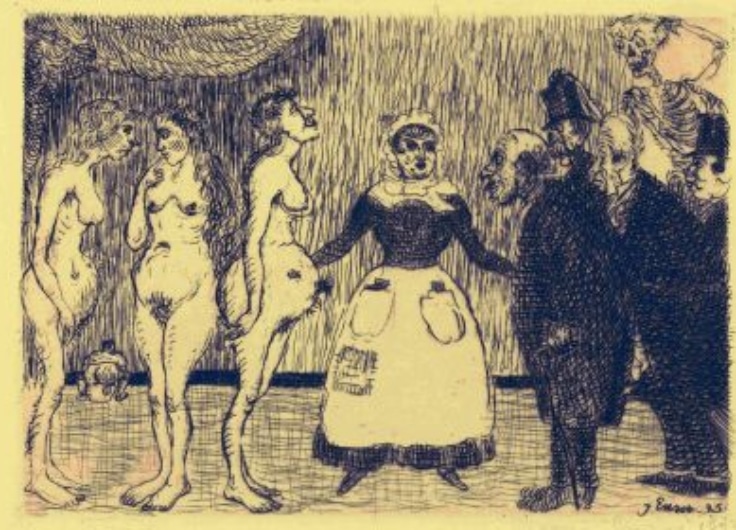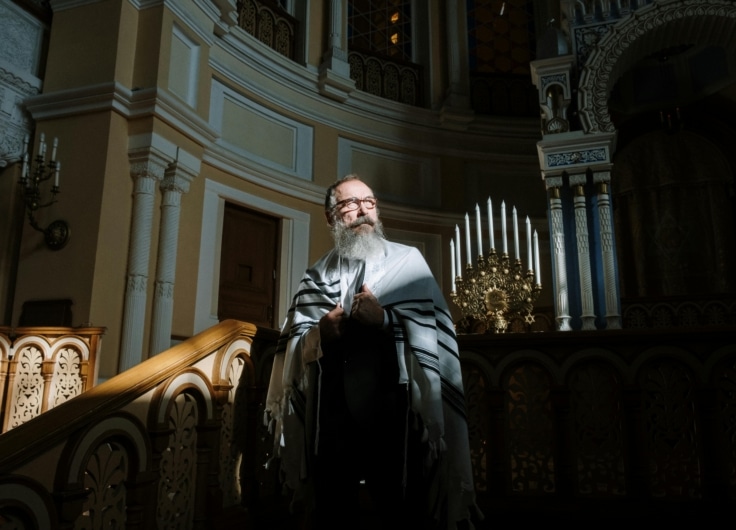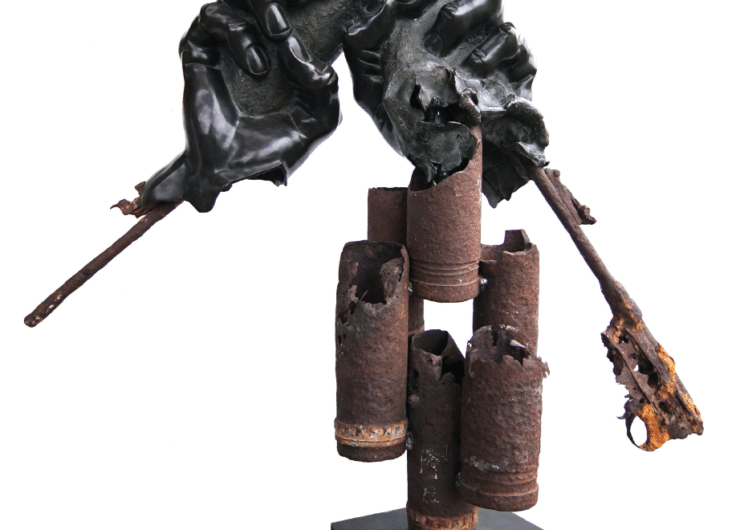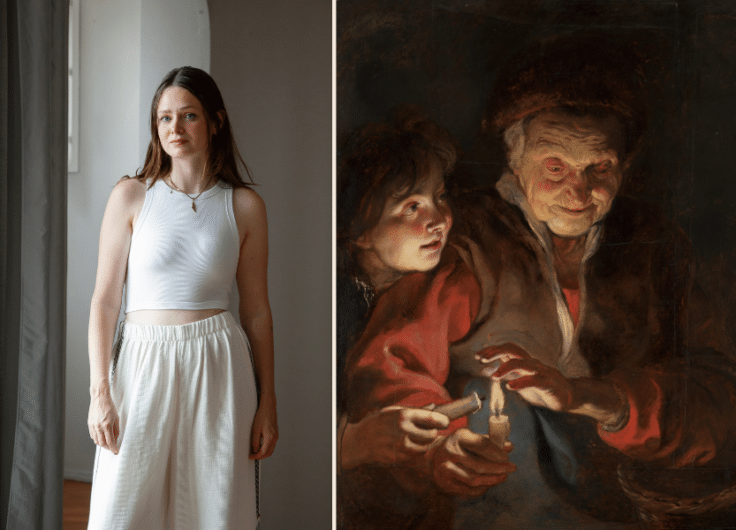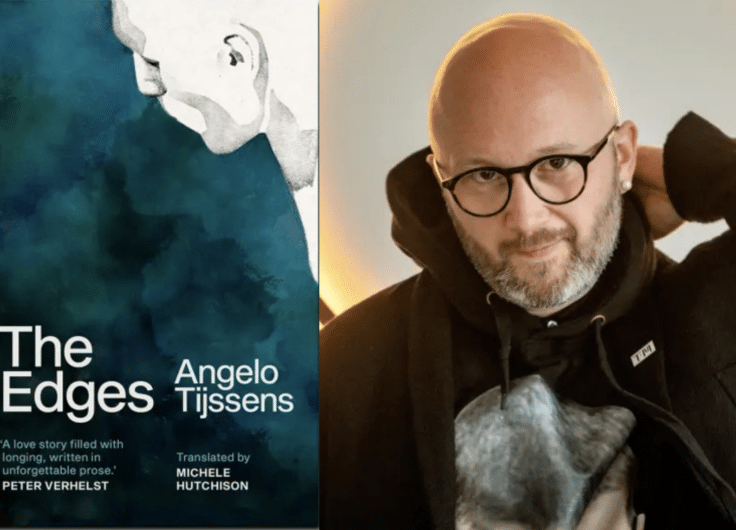‘Uiterste Dagen’ by Ferdinand Lankamp: A Dark Family Novel About What Drives People
In Uiterste Dagen (Utmost Days), Ferdinand Lankamp seeks out the story of his family in Sweden and Finland. It becomes a search for people’s drives, which can sometimes be very dark.
For writers in search of mystery, northern places are very enticing, even in the Low Countries it seems. In the cold, inhospitable north, they start tracing their background, or look for a deeper meaning to life. Scandinavia, Iceland and Canada prove to be good places of refuge for sabbaticals, adventurous excursions and philosophical journeys of discovery. The cold guarantees introspection, and the people that live there often turn out to be warmer and more welcoming than at home.
 Ferdinand Lankamp
Ferdinand LankampThere is, of course, the 1966 classic Nooit meer slapen (Beyond Sleep, 2006, Harvill Secker) by Willem Frederik Hermans, but more recently stories have been published that are set against snowstorms and harsh winters. In 2018, the Flemish writer Sien Volders debuted with her gripping novel Noord (North, Hollands Diep), and early this year the successful Dutch novelist Herman Koch published Finse dagen (Finnish Days, Ambo Anthos), which focuses on his experiences as a young man on a Finnish farm. But it is no autobiography pure and simple: reality is easier to digest if you throw in a generous dose of imagination.
The Dutch historian Ferdinand Lankamp (b. 1989), who has published in academic magazines and on literary websites, similarly mixes fiction with autobiographical details in his first novel Uiterste Dagen
(Utmost Days) that came out last year, and is also set mostly in Finland.
The main narrative takes place in 1940. Edvard Haga is an industrious, quiet, pious farmer from the large Swedish-speaking community in Finland, who fought in the Finnish Civil War in the last year of the First World War. In that conflict the Red Finns, supported by the Russian Bolsheviks, were defeated by the anti-communist White Guard, which numbered many Swedish volunteers.
Very subtly, with attention to detail, Lankamp unravels the history of the Haga family and of the entire region
Now, at the outbreak of the Second World War, with the Soviet invasion of Finland, the Finnish army appeals to Edvard’s patriotic sense of responsibility once more. He is asked to hand over his best horse to the Swedish cavalry, and to accompany his and others’ on the journey to the new frontline. But Edvard’s best horse is his only daughter Elisa’s favourite, so he is faced with a heart-breaking choice between his family and his adopted homeland.
This is where the story of the Haga family begins in Lankamp’s tale. As is common in small village communities, the story of the Haga family is akin to those of the other farming families both in their own and neighbouring villages. Sons and daughters of farmers marry, sometimes for love, sometimes out of economic or other necessity, seldom out of free will.

Very subtly, with attention to detail, Lankamp unravels the history of the Haga family and of the entire region. Several dark spells are hanging over people and place, sometimes interconnecting. Little by little, the stories come seeping out in his simple but beautiful sentences, and the reader is led to wonder the truth of what really happened and what didn’t. What do the men and women keep hidden from each other? Who is on which side? Who can be trusted in such uncertain times?
This central narrative is seasoned by a story unfolding in the present day: that of the writer himself, who in one way or another appears to be connected to the Swedish-Finnish Haga family. Lankamp goes on a voyage of discovery to Finland and to libraries, to find out about his background and what happened in his family’s past. But it is hard to grasp the truth of the matter.
Lankamp confesses a preference for stories without a plot: life doesn’t really have one, except for that we all die in the end. Later, the writer changes his mind. Life’s plot is that people shape the events of their lives into one story. And that is of course exactly what Lankamp does here in this layered novel.
The chapters from 1940 and the contemporary ones, entitled simply ‘later’, alternate, which can sometimes be confusing. Occasionally Lankamp reveals pieces of the 1940 puzzle as he is searching for them now. Although a giveaway, it of course helps the reader to understand better the earlier parts.
You could choose to first read only the sections from 1940, then the present-day notes of the young writer. But no matter how you read it, the book is an adventurous, somewhat dark family novel about what drives people, and how they look back on their past decisions and the consequences.
Excerpts from ‘Uiterste dagen’, as translated by Paul Vincent
Excerpt 1 – pp. 19-20
It’s already daybreak. He goes to the stable, to Ida, and gives her a couple of gentle taps on the neck. He also inspects the three other mares in the stable. All young enough to foal and hence unsuitable for service at the front. Ida is already getting on, but strong enough and obedient too. A good hard worker. She nods when he rubs her neck, and moans very softly. He remembers the mare of Farmer Thors from Runsor, a superb animal with lots of descendants, friendly and intelligent. When the War of Independence broke out in 1918, she was requisitioned by an officer and taken to the front, where she took part in the assault on Tammerfors. She survived and came back unscathed, but she could no longer go out on the road: she kept trying to hide under trees and whenever she could fled into stables and barns. She was never her old self again. She still cost food and water, though. There were shortages, it was getting on for winter.
‘Perhaps none of it will be necessary, my love,’ says Edvard. Cecilia appears in the stable doorway and greets him. She is wearing a thin coat and a pair of work gloves, and she has put her hair up. He wants to ask if she’s cold; he can’t imagine that Elsa has let her come out like that.
‘It’s good weather, don’t you think,’ he says. ‘They can go out into the meadow.’
Cecilia sniffs or inhales yes, he can’t hear properly. She had always been rather quiet, he thought it was awkwardness, perhaps even submissiveness. Quite different from Birgitta, who never seems to have been afraid of him. But Cecilia has become more mature, at least since Birgitta’s departure for Germany. Edvard doesn’t quite know what to make of it.
‘Have you seen the lorry from the dairy yet?’ he says. Without waiting for an answer he walks past her out of the stable.
Once he gets to the road he sees that the milk churns have been moved slightly. He picks them up one by one. Empty. In the distance the first yellowy sunlight falls on the snow-covered roof of Farmer Solgård’s place. Beyond it he sees the tops of the pines of Näsbacken. Beyond them are the villages of Solf and Sundom, then the wide skerry landscape, the transition from land to sea. He looks to the side, northwards, from where the messenger must come. For a moment he thinks he sees some movement up on the hill. There is nothing.
Excerpt 2 – pp. 32-33
Edvard has taken an oil lamp with him to the sauna. By its light Falander is even more gigantic. He is older than Edvard, but his shoulders are youthful and broad, his white head of hair is still full and thick. He compliments Edvard on the sauna and screws up his eyes to see the woodwork.
‘You come of good people,’ says Falander, stretching out. He is still shivering from the cold water that he poured over his back before coming in. ‘Very good and very strong people. My own great-grandfather was born in these parts, did you know that? In Karleby. I was brought up with the idea that my forefathers come from Österbotten and that we Falanders have the same nature as the people here. When my father finally had a chance to buy land here he didn’t hesitate for a moment. It was quite an event, a return to our old homeland…’
He is silent for a while, Edvard closes his eyes. It’s true, Falander doesn’t come from here, he realises. Where was he born then? He was told once, perhaps by Anders, perhaps by Joel. Falander’s father was a Finnish officer in the Russian army which fought the Muslims somewhere in the steppes.
‘I’ve always had people from Österbotten under my command,’ he goes on. ‘Good, stubborn people. The lads I took to Germany with me came from here, like the chaps I commanded in the War of Independence. Great sense of duty too. Always focused on higher things. I’ll be honest with you. That did for me in ’32, as you know. Perhaps I was wrong at the time, perhaps. But I was frightened the reds would take control again, while we had spilt our blood over it. So I felt it was necessary to join forces with the people who wanted to protect Finland from that. The lads from Österbotten, your people, were wiser than me. They kept their heads down. And I, I made a penance, in rank and in spirit. Go knows, God knows.’
Ferdinand Lankamp, Uiterste dagen, Atlas Contact, Amsterdam, 2019, 222 pp.


